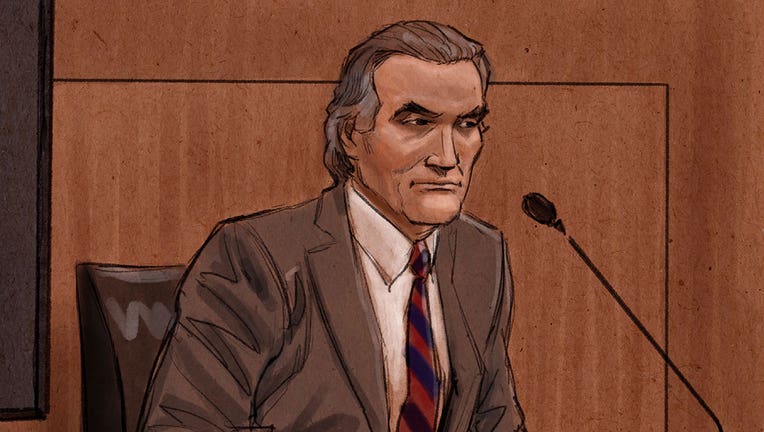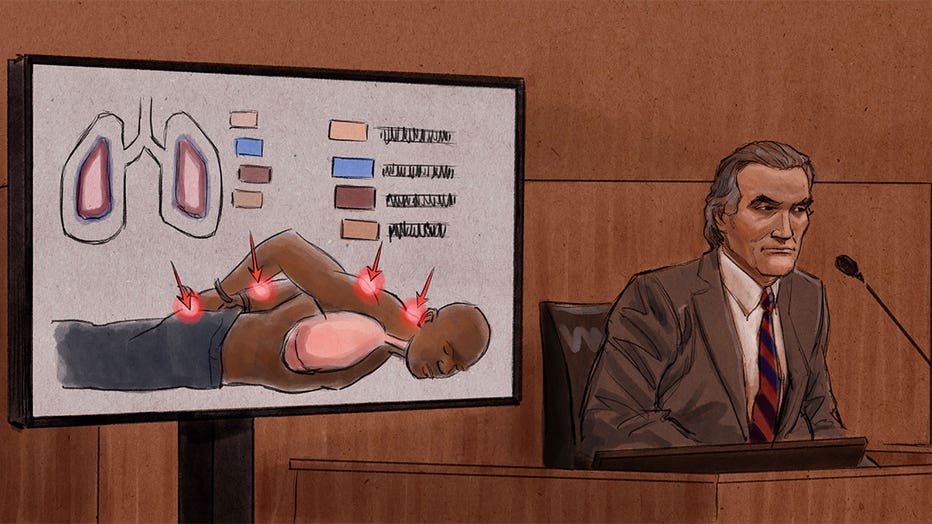MPD federal trial: Pulmonologist says officers could have saved George Floyd's life

(Cedric Hohnstadt Illustration)
ST. PAUL, Minn. (FOX 9) - After a five-day break because of a positive COVID-19 test, the federal trial of three former Minneapolis Police officers resumed Monday morning in St. Paul. On the stand, a prosecution expert witness testified that George Floyd died because his oxygen was cut off, leading to an abnormal heart rhythm.
Tou Thao, J. Alexander Kueng, and Thomas Lane are charged with violating George Floyd’s civil rights when Floyd was murdered by fellow former officer Derek Chauvin in May 2020.
They are accused of failing to intervene with deadly use of force and failing to provide medical aid.
On Wednesday morning, before a witness took the stand, the trial was abruptly halted when one of the defendants tested positive for COVID-19. On Monday morning, with negative tests all around, the trial got underway again.
On the stand, Dr. David Systrom, a pulmonary physician from Brigham and Women’s Hospital in Boston, Massachusetts. He is also an assistant professor at Harvard Medical School.
After educating the jury on the anatomy of the chest and lungs and how oxygen circulates through the bloodstream, he was asked more directly about how he believes Floyd died and what could have been done to save him.
"I believe Mr. Floyd died from asphyxia, which is insufficient breathing," said Dr. Systrom, saying his airway was compressed in half by Chauvin’s knee on his neck, and that "he also suffered from inadequate breathing from being restrained in the prone position on hard asphalt with his hands tied."

(Cedric Hohnstadt Illustration)
In other words, he could take in much less oxygen because his neck was compressed and his lungs could not expand face down on the pavement with pressure on his back.
Dr. Systrom explained that this leads to rapidly falling oxygen levels in the blood and rapidly rising carbon dioxide levels. This leads to what’s called acidosis, or high acid levels in tissues that triggers abnormal heart rhythms.
Asked about George Floyd’s enlarged heart, Dr. Systrom testified that it had nothing to do with his death. While Floyd had some clogging in heart arteries, he did not have a heart attack, which is caused by a sudden blockage.
Asked also about fentanyl found in Floyd’s bloodstream, Dr. Systrom said that also played no role. He testified that drugs like fentanyl are used medically to slow a patient’s breathing. Before he lost consciousness, George Floyd’s breathing was actually faster than normal as he struggled to get enough oxygen.
Asked what could have saved George Floyd’s life, he testified that had CPR started as soon as Floyd lost consciousness, his chances would have doubled or tripled.
Before he lost consciousness, he testified that by simply removing the pressure from Floyd’s neck or moving him to a seated position, his blood oxygen and carbon dioxide levels would have reversed "rapidly."
"If he had been repositioned before loss of consciousness, what would his survival chance be?" asked the prosecutor. "Close to 100%," he answered.

